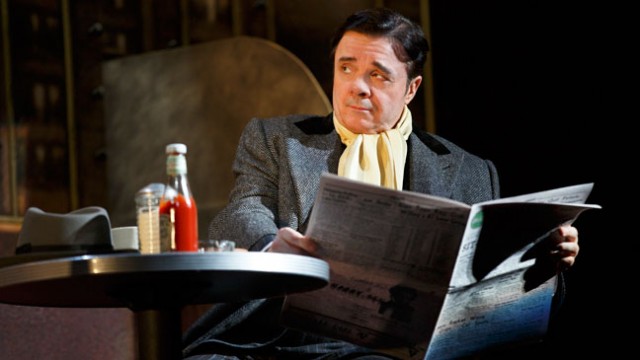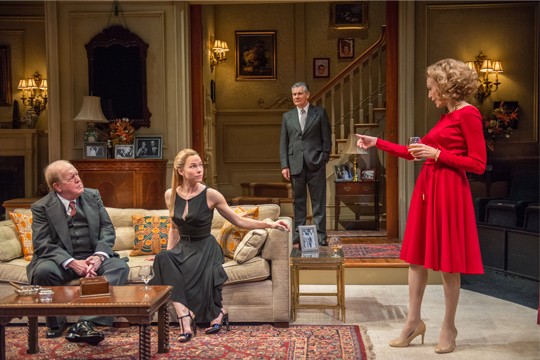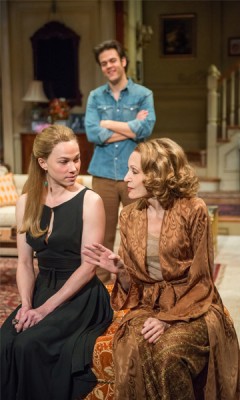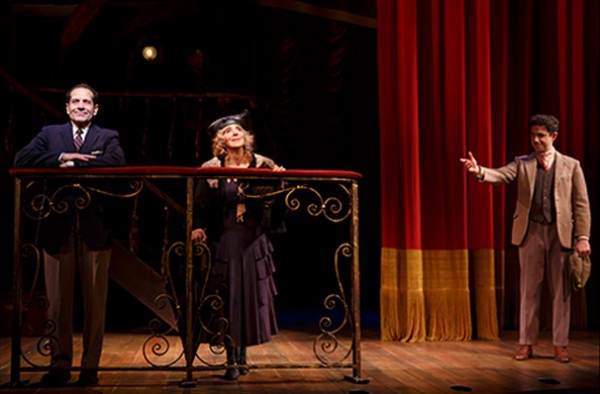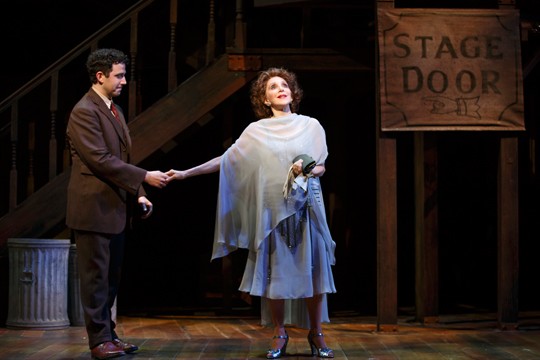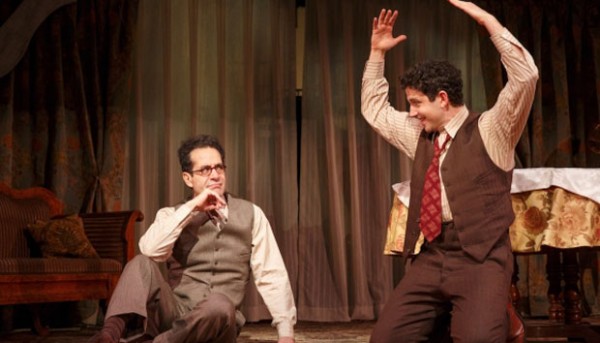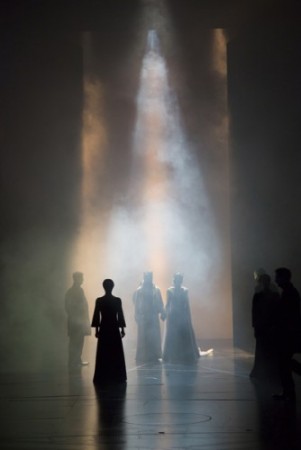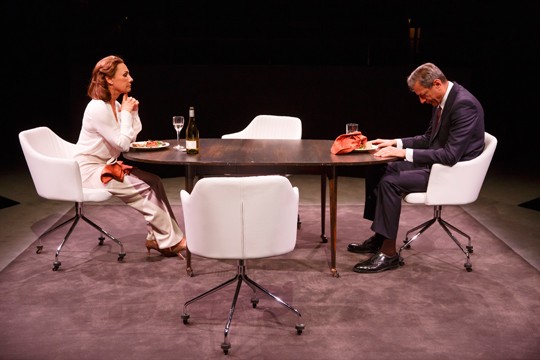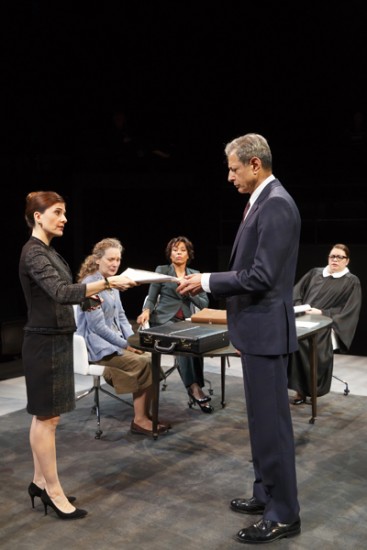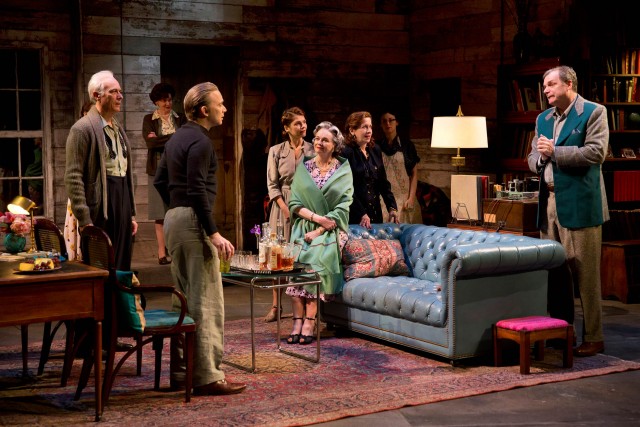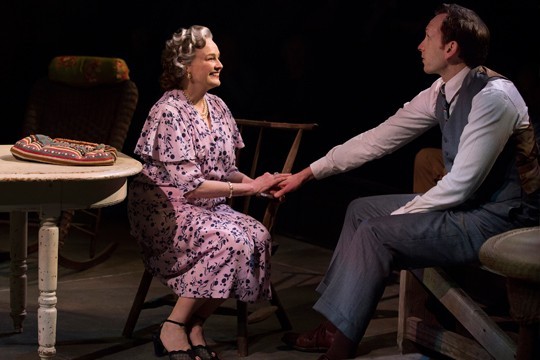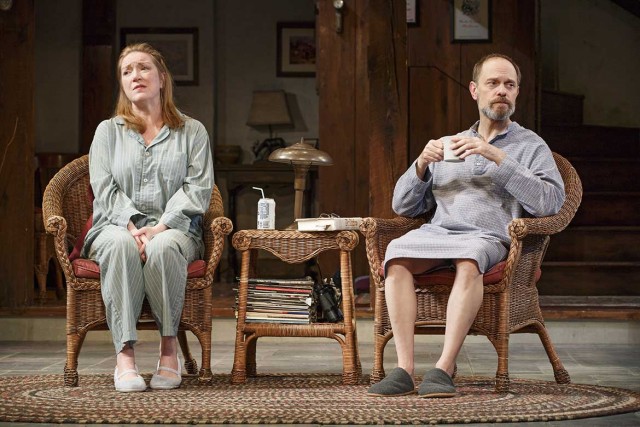
Vanya (David Hyde Pierce) and Sonia (Kristine Nielsen) look back at their sad lives in Christopher Durang’s Chekhovian mashup (photo by Carol Rosegg)
Golden Theatre
252 West 45th St. between Broadway & Eighth Ave.
Tuesday – Sunday through July 28, $62 – $142
www.vanyasoniamashaspike.com
When he was at Yale in the 1970s, Christopher Durang teamed with Albert Innaurato and Jack Feldman on The Idiots Karamazov, a musical about a Russian translator that begins with a song titled “O, We Gotta Get to Moscow,” as the translator confuses Dostoevsky with Chekhov and other writers. Going to Moscow shows up again in Durang’s delightful satire, Vanya and Sonia and Masha and Spike, which has made a successful transition from Lincoln Center’s Mitzi E. Newhouse to Broadway’s Golden Theatre. Durang sets his latest play in a Bucks County farmhouse by a lake where a blue heron stops by daily, based on the Bucks County farmhouse by a lake with a blue heron where Durang and his partner reside. Living in the fictional house are Vanya (David Hyde Pierce) and Sonia (Kristine Nielsen), a pair of fiftysomething siblings (one adopted) who have essentially sacrificed what lives they might have had by taking care of their ill, elderly parents while their sister, Masha (Sigourney Weaver), became a famous movie star gallivanting around the world with five husbands. Clearly, their parents had a thing for Chekhov; Masha is named after characters from The Seagull and Three Sisters, Vanya and the adopted Sonia from Uncle Vanya. Invited to a neighbor’s costume party, Masha arrives at the house in grand diva fashion, overemoting and unable to keep her hands off her hot new boy toy, Spike (Billy Magnussen), who enjoys taking off most of his clothes at a moment’s notice and striking muscular poses. Masha quickly grows jealous when Spike meets young, pretty ingénue Nina (played at Lincoln Center by Genevieve Angelson and now by Leisel Allen Yeager, the only cast change from the original production), a wannabe actress named after the young, innocent actress in The Seagull. Meanwhile, the cleaning lady, Cassandra (Shalita Grant), makes dire predictions that keep coming true, just like her namesake, the Greek mythological figure with second sight. As Vanya, Sonia, Masha, Spike, and Nina prepare for the party — Masha insists they all go as characters from Snow White, with Masha as the beautiful protagonist, slyly referencing Weaver’s portrayal of the evil stepmother in the 1997 television movie Snow White: A Tale of Terror — jealousy, fear, deception, childhood resentment, and more bubble to the surface and threaten to erupt, albeit in primarily wacky, hysterical ways.
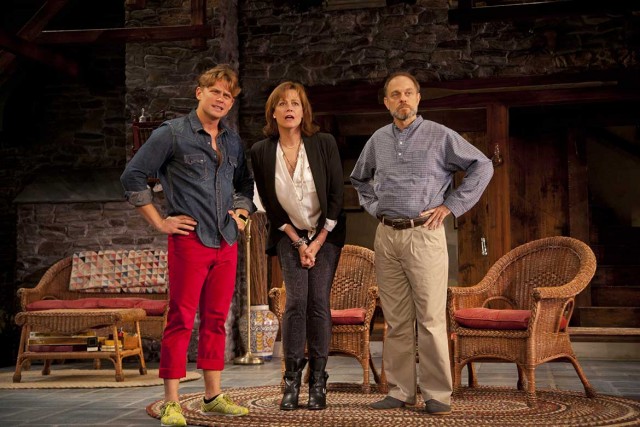
Spike (Billy Magnussen), Masha (Sigourney Weaver), and Vanya (David Hyde Pierce) spend a crazy weekend together in Bucks County (photo by Carol Rosegg)
You don’t need to know anything about Chekhov and his searing dramas about seriously dysfunctional families to get a huge kick out of Vanya and Sonia and Masha and Spike, which has a unique family feel itself — Weaver has been working with Durang since the Yale days, Hyde Pierce starred in the Broadway production of the playwright’s Beyond Therapy (as well as Peter Brook’s The Cherry Orchard), and Nielsen is Durang’s acknowledged muse, having appeared in many of his shows, in parts specifically written for her. Director Nicholas Martin, who previously helmed Durang’s Why Torture Is Wrong, and the People Who Love Them at the Public, keeps things relatively natural and grounded even with Weaver, Magnussen, and Grant playing things deliciously way over the top, as the story’s tender heart is wonderfully captured by the amazing Nielsen and Hyde Pierce, who agonize over their loneliness and advancing age, the importance of family, and, perhaps most Chekhovian, a world that seems to be passing them by. Vanya and Sonia and Masha and Spike is a thoroughly enjoyable if often goofy and now, on Broadway, even bigger and broader mashup from one of America’s most engaging satirists at the top of his game. (And be sure to go here to read the fall 2012 issue of Lincoln Center Review, which includes Durang’s “My Life with Chekhov,” an essay detailing seven encounters he had with the Russian playwright, dating back to when he was fourteen.)
